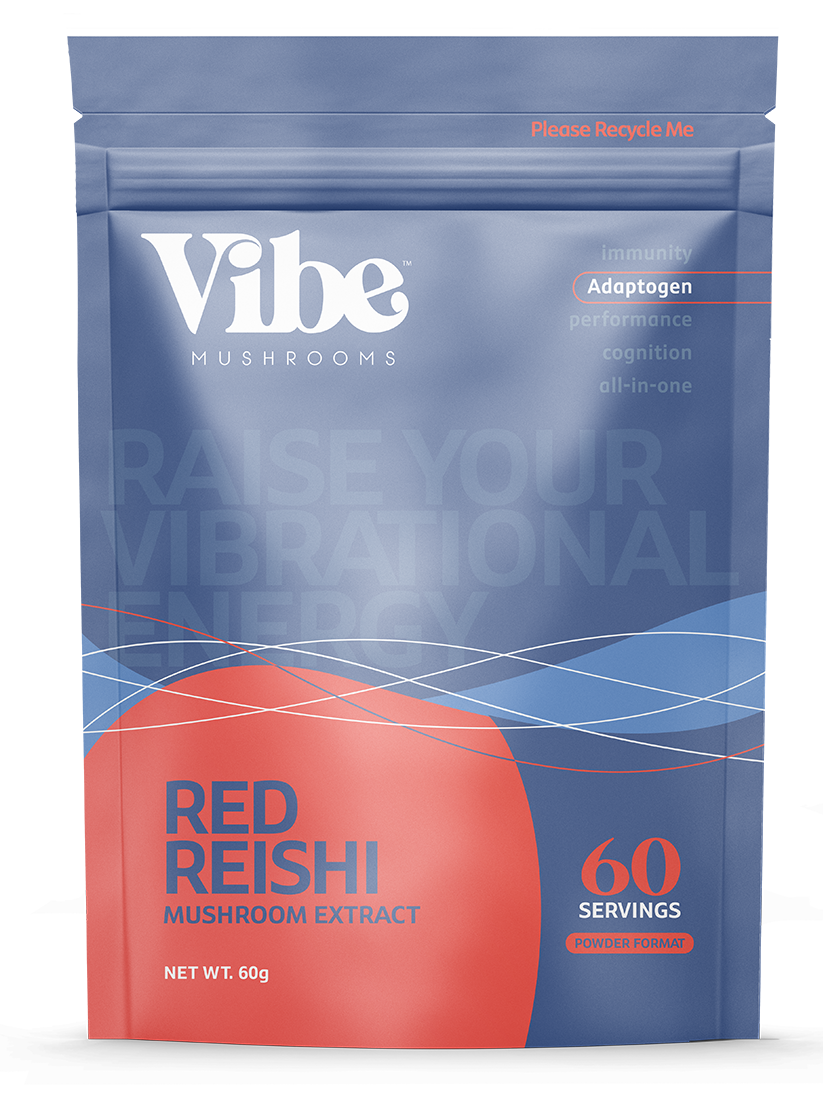
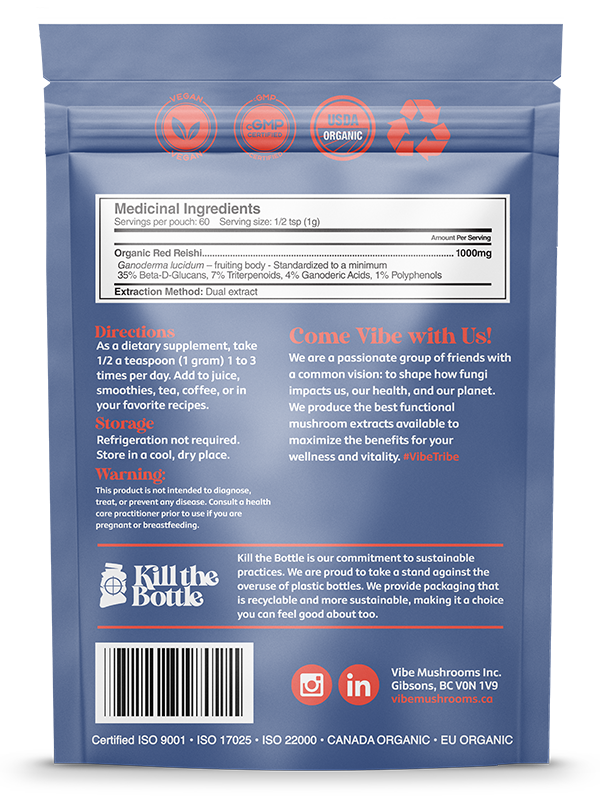
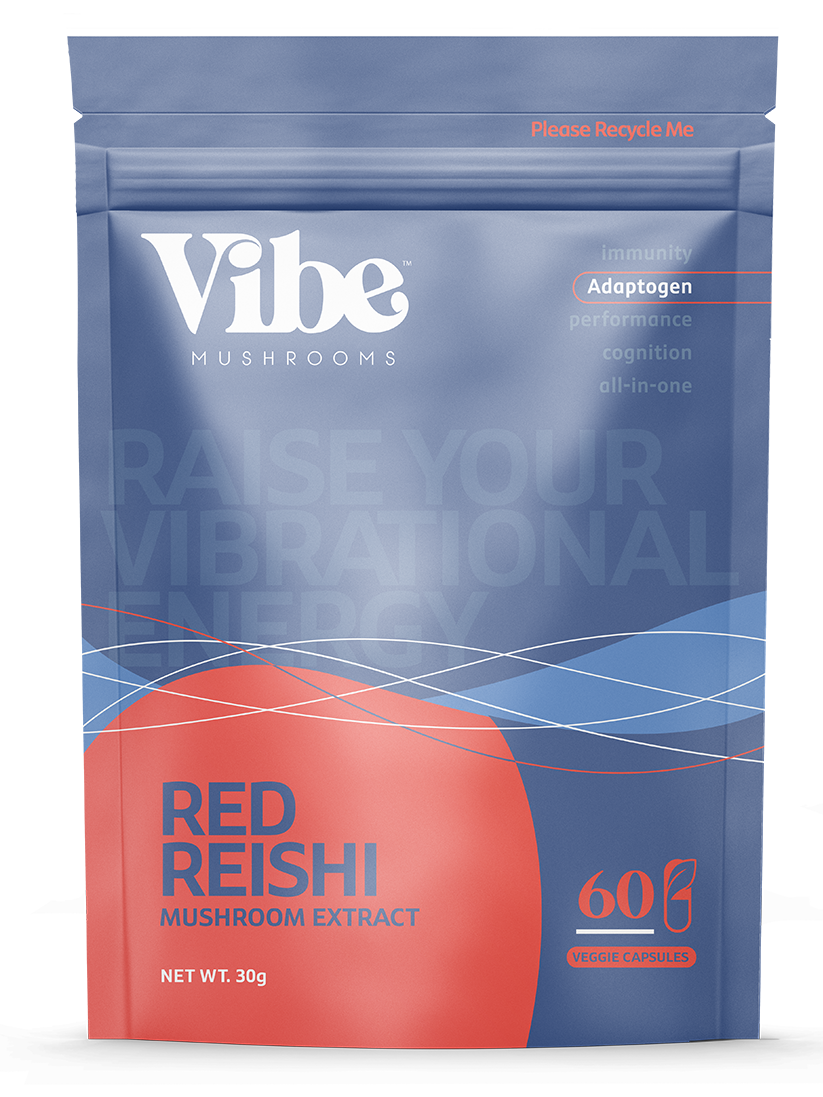
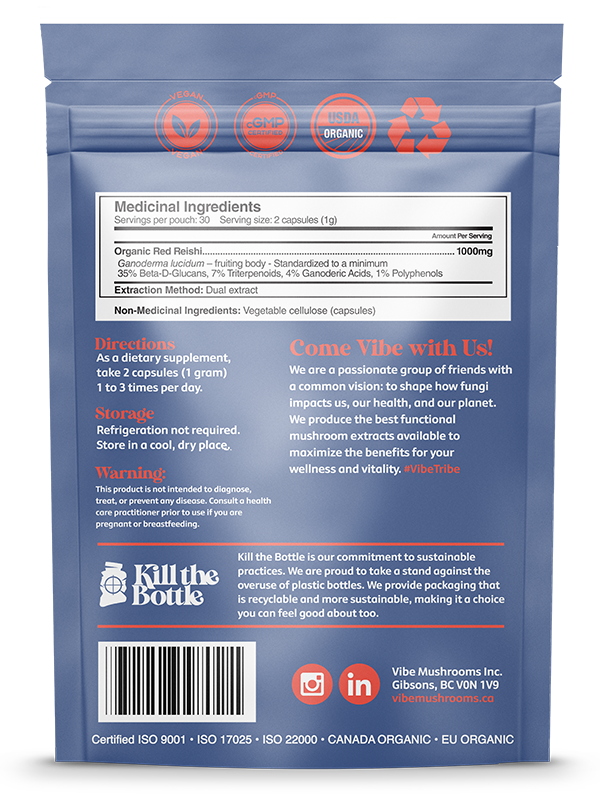
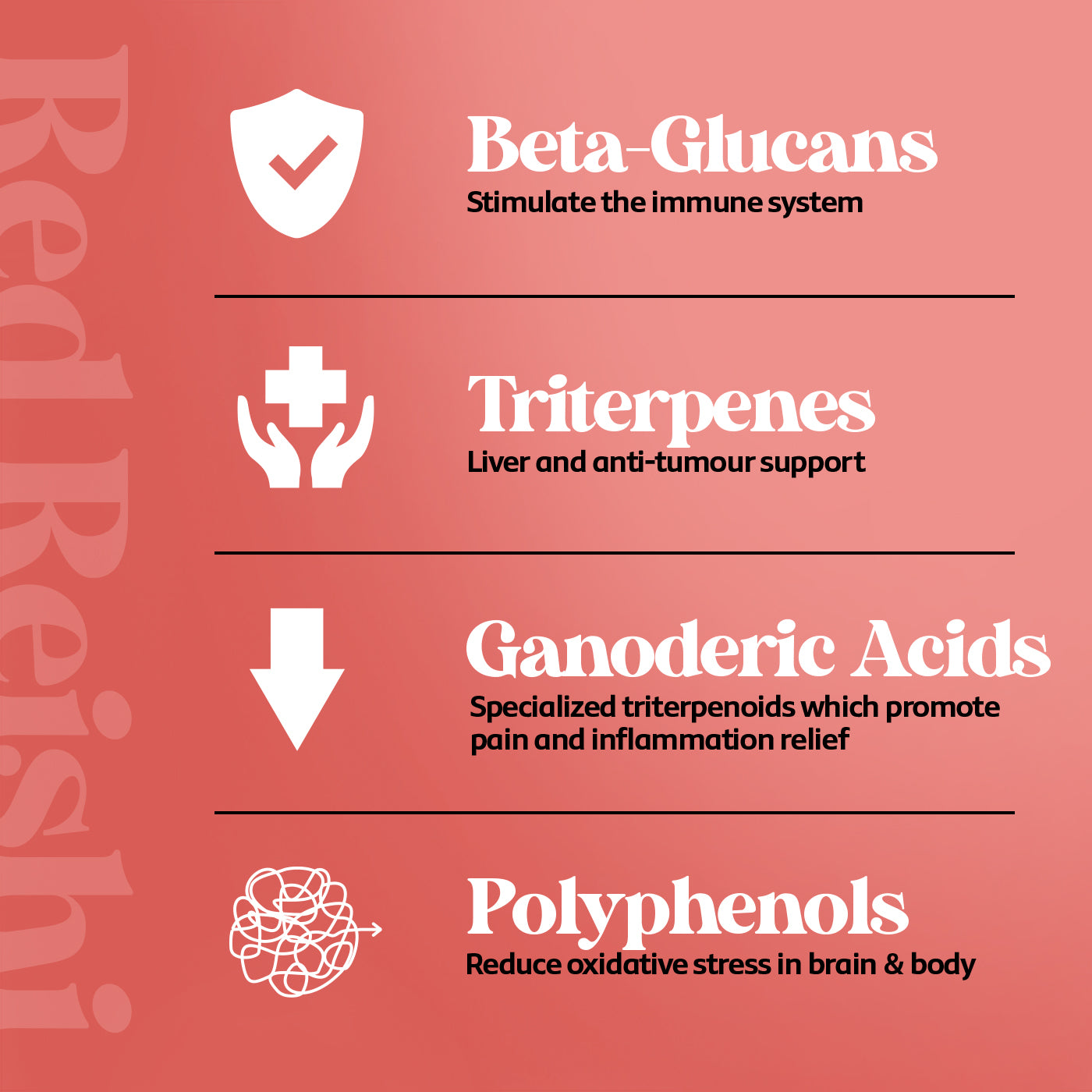
The Science
How our Red Reishi Works
Red Reishi is the most potent medicinal mushroom extract on earth. Its’ main constituents, triterpenes and ganoderic Acids, are extracted with utmost care to ensure that its user gets all their benefits in one single dose. Here's how the ganoderic acids and triterpenes in our Red Reishi can help you:
Ganoderic acids act as antioxidants to reduce oxidative stress and rebuild damaged tissues. This impacts pain level and inflammation in people with rheumatoid arthritis.
Ganoderic acids have been shown to be effective as an analgesic, or direct pain reliever, while also providing relief from the discomfort associated with chronic diseases.
Scientists have found that the extract of ganoderic acid can offer relief from general fatigue for patients undergoing chemotherapy.
Reishi triterpene compounds are found to have hepatoprotective, anti-tumour and 5-alpha reductase inhibition effects.
Ganoderic Acids are a natural way to support androgen and estrogen metabolism. It's also used as conventional medicine for male pattern baldness, prostate enlargement, and hormonal imbalances.
1g
Red Reishi
Mushroom
Extract per
serving
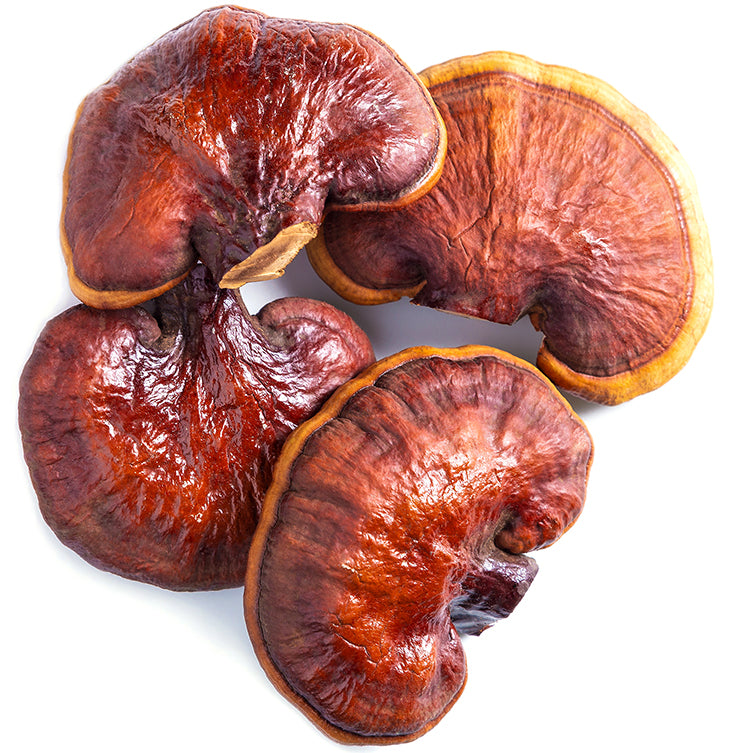
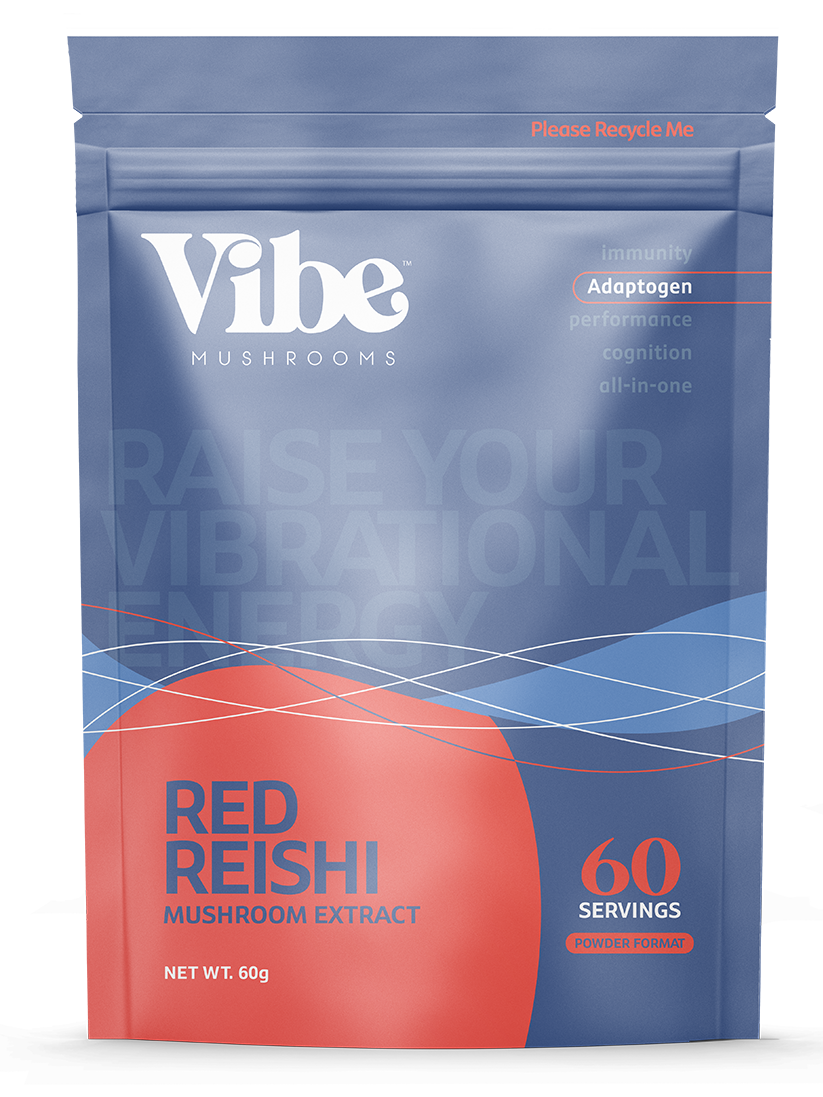
Support Benefits
Adapt to stress
Relieve insomnia
Cardiovascular support
Cholesterol support
Blood pressure support
Strengthen immune system
Promote longevity

How to use
Powder: Take ½ teaspoon (1gram), 1-3 times a day. Add to juice, smoothie bowls, tea, coffee, or in your favourite recipes.
Capsules: Take 2 capsules (1gram), 1-3 times a day with a glass of water.
Our extracts are very powerful, so please start at the low end and incrementally increase your dose over time. Start low and go slow.
Store in a cool, dry place. Consult a medical doctor before taking this if you are pregnant, nursing, have or suspect a medical condition, or are taking medications.
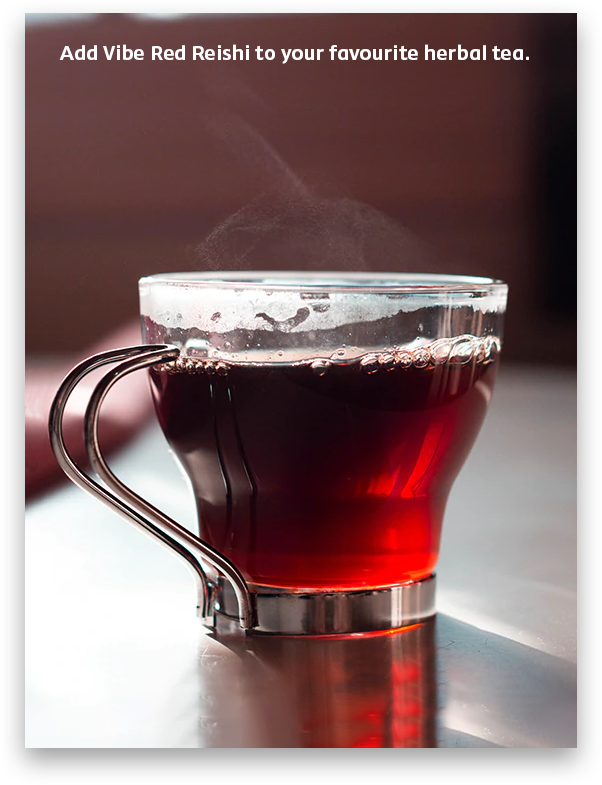
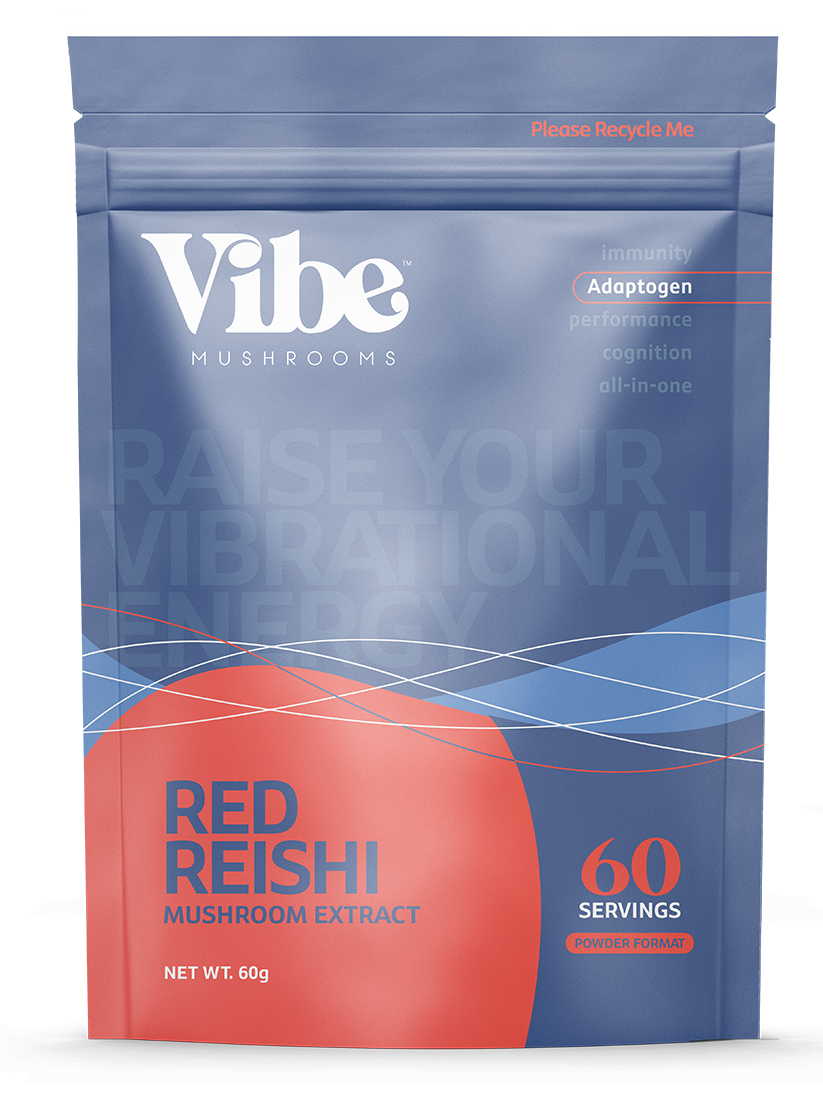
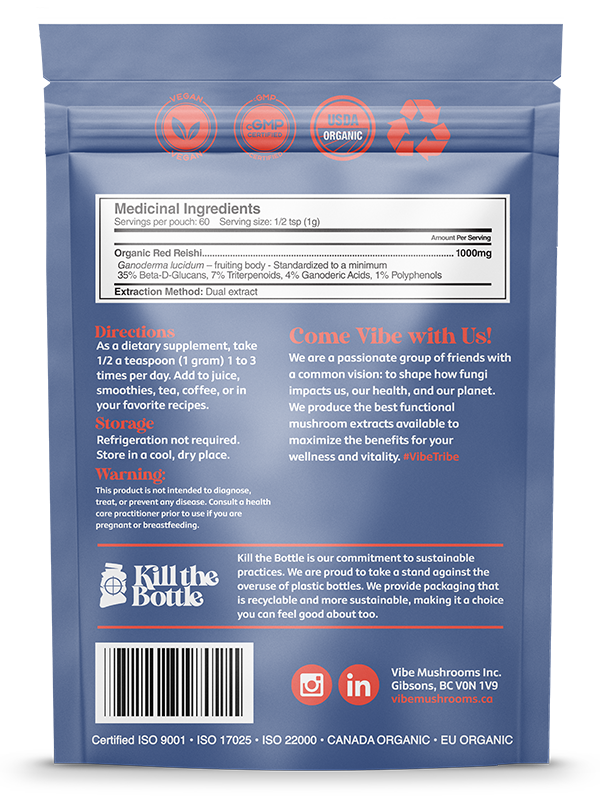
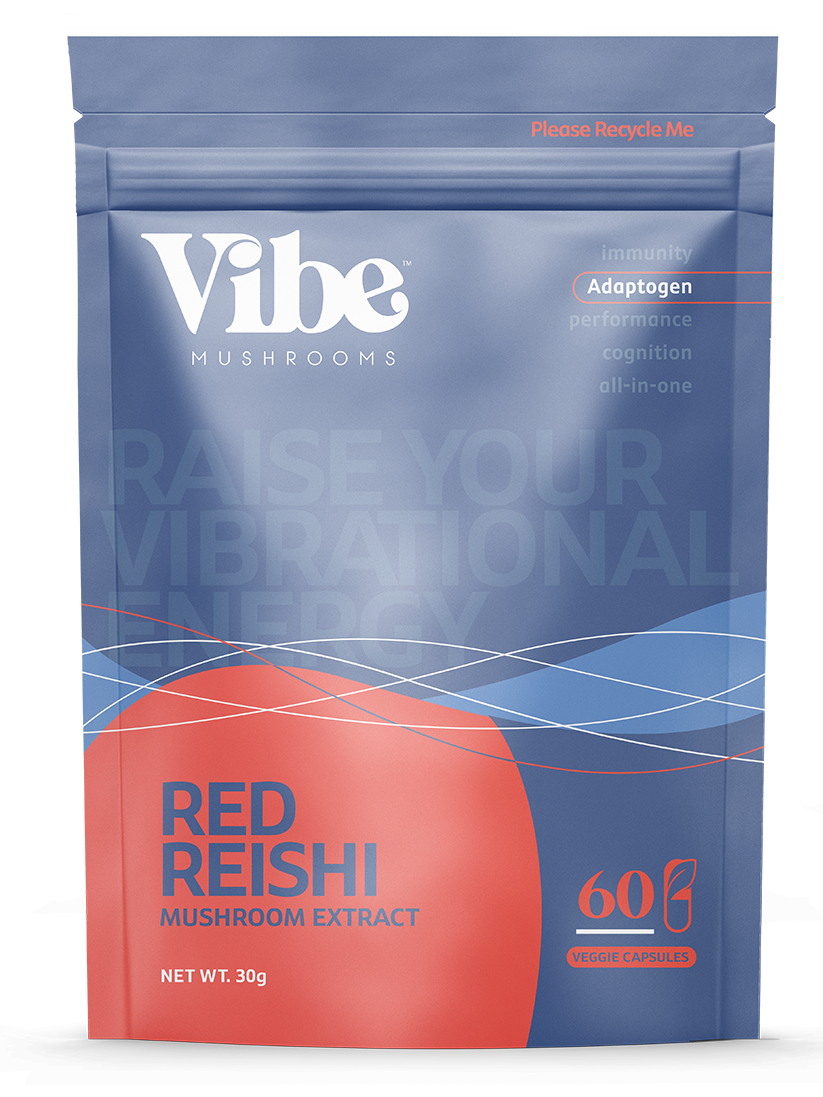
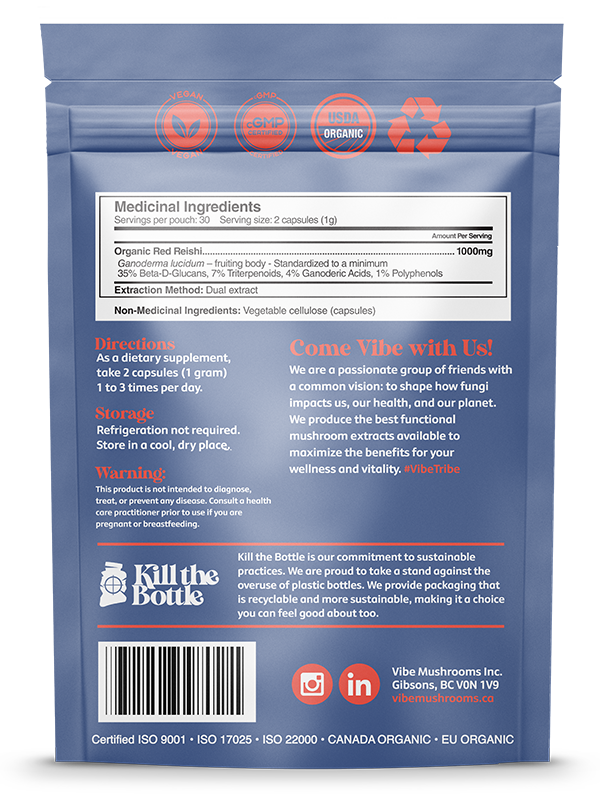
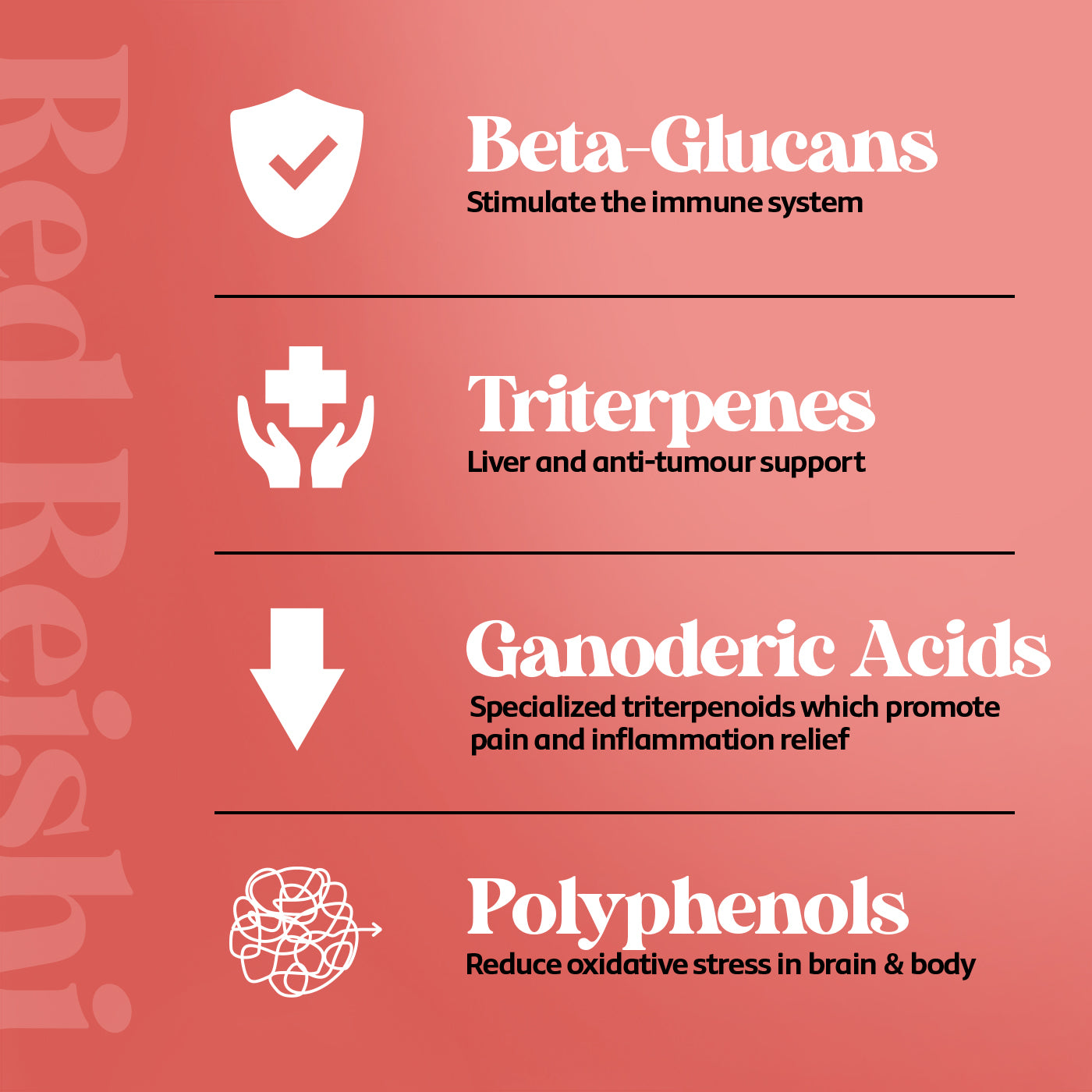

 on Vancouver Island, BC.
on Vancouver Island, BC.